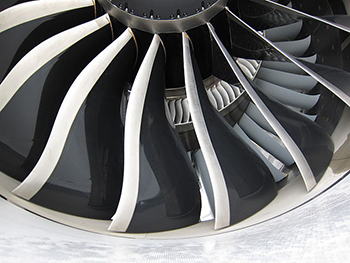"The O’Reilly Solid Podcast" entries

Joe Biron on what’s new about the IoT
The IoT entails a flexible platform approach to accommodate new applications that haven’t been conceived yet.
Subscribe to the O’Reilly Solid Podcast for insight and analysis about the Internet of Things and the worlds of hardware, software, and manufacturing.
 Machines have been able to talk to each other and to computers for a long time, so what’s the big deal with the IoT? That’s the first question I ask Joe Biron, my guest on this episode of the Solid Podcast. Biron is VP of IoT technology at ThingWorx, a PTC business that offers a platform for rapid development of Internet of Things applications.
Machines have been able to talk to each other and to computers for a long time, so what’s the big deal with the IoT? That’s the first question I ask Joe Biron, my guest on this episode of the Solid Podcast. Biron is VP of IoT technology at ThingWorx, a PTC business that offers a platform for rapid development of Internet of Things applications.
The answer, says Joe, is that where the machine-to-machine (M2M) model is stovepiped and specialized, the IoT entails a platform approach. Machines on the IoT are abstracted, which makes decentralized application development possible. And it’s more flexible: the platform will eventually be able to accommodate new applications that haven’t been conceived yet. Read more…

Jim Stogdill on cloud-based typewriters and smart watches
The O’Reilly Solid Podcast: Distractions, wearables, and reference peanut butter.
Subscribe to the O’Reilly Solid Podcast for insight and analysis about the Internet of Things and the worlds of hardware, software, and manufacturing.
In this episode of the Solid Podcast, David Cranor and I talk with Jim Stogdill, one of the key figures behind the launch of our Solid conference, about some of the cool pieces of hardware that we’ve come across recently.
Stogdill starts off with the Hemingwrite, an ultra-simplified Internet-connected typewriter for writers who need to isolate themselves from distraction. It duplicates, at significant expense and austerity, a small part of any modern computer’s functionality. The Hemingwrite’s existence — along with that of its oversubscribed Kickstarter campaign — demonstrates the new economics of hardware: development costs have fallen enough that clever entrepreneurs can isolate and solve niche consumer problems like needing a browserless computer because you sometimes don’t want to be distracted by your browsered computer. Also, I’d like one. Read more…

Quentin Hardy on Facebook’s drones
The O’Reilly Solid Podcast: The New York Times' deputy technology editor talks about technology, people, and power.
Subscribe to the O’Reilly Solid Podcast for insight and analysis about the Internet of Things and the worlds of hardware, software, and manufacturing.
 In our new episode of the Solid Podcast, David Cranor and I talk with New York Times deputy technology editor Quentin Hardy. Hardy recorded with us just after visiting Facebook’s Aquila drone project, which promises to extend Internet access to remote parts of the globe — and to advance a slew of aerospace and communication technologies through open sourcing.
In our new episode of the Solid Podcast, David Cranor and I talk with New York Times deputy technology editor Quentin Hardy. Hardy recorded with us just after visiting Facebook’s Aquila drone project, which promises to extend Internet access to remote parts of the globe — and to advance a slew of aerospace and communication technologies through open sourcing.
Projects like Aquila can challenge traditional government, but have their own tendency to create new mechanisms for control. “What’s clear is that existing systems of power will morph or collapse in decades to come because of these new technologies,” Hardy says, noting the contradiction that, in today’s world, “people have never been more empowered, and they’ve never been so controlled and repressed.”
We also talk about what’s happening in Shenzhen, China (which has been called “China’s Silicon Valley”), and the hardware hub’s dynamic mix of entrepreneurship, knockoffs, and innovation. Read more…
